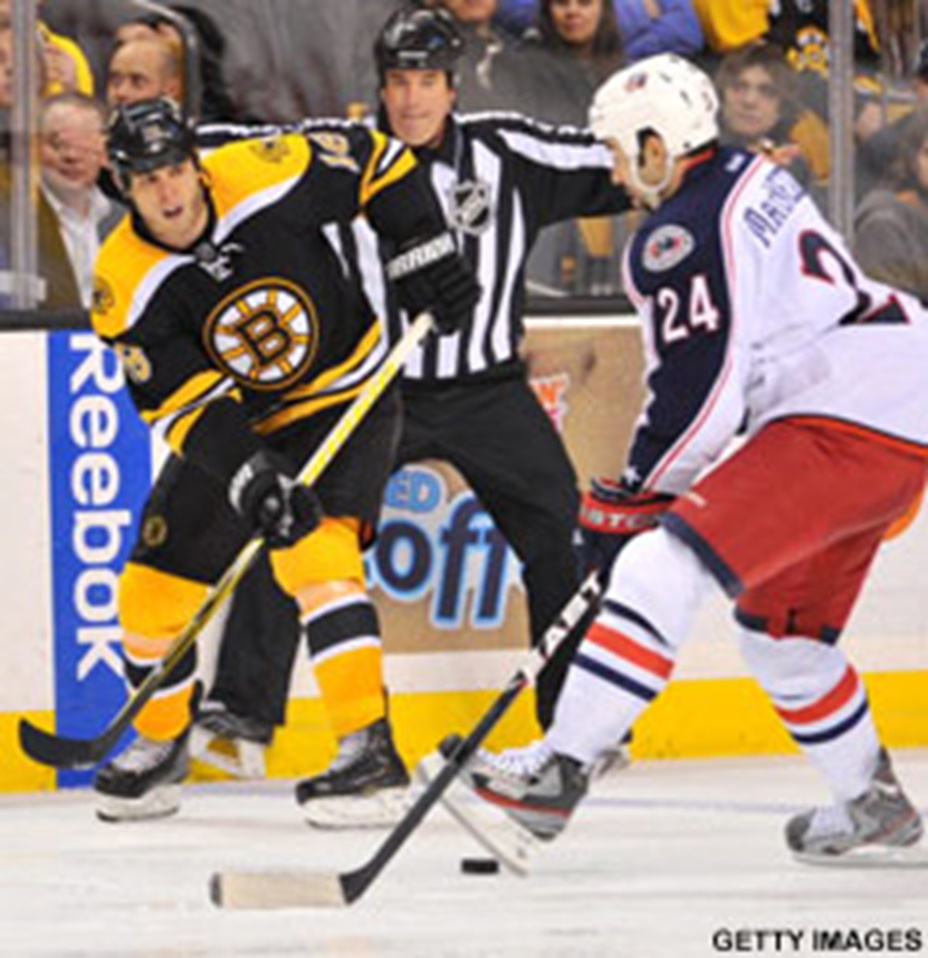Friday marked a "free-agent frenzy of pre-lockouts proportion, and a day on the NHL calendar that may usurp trade deadline day in player movement," according to Mark Spector of SPORTSNET.ca. NHL teams "signed 59 contracts, for 105 years of term, for a grand total of roughly" $375M (all figures U.S.). Spector: "Why did this UFA season blast off so much quicker than so many before?" The consensus was that the "difference maker was the two-day talking period for agents and GMs that led into July 5." Coyotes GM Don Maloney said, "I don’t know how much wining and dining was being done. But I have a feeling in years to come, with a bigger window to do your selling, you’ll see some more extravagant efforts to get players to come. It’s a brave new world we’re living in." With nearly $400M "being thrown around, why wouldn’t the NHL want to create an atmosphere where players and teams have the necessary time to make informed decisions?" It is a "complex landscape here in the cap world, and contracts signed will impact a GM for years to come" (SPORTSNET.ca, 7/5). In N.Y., Pat Leonard noted despite nearly half of NHL teams entering Friday with fewer than $10M "to upgrade their roster ... dollars flew out of owners' wallets and into the pockets of players who just weeks ago had been uncertain of their bargaining power in a seemingly shrinking market." Owners and GMs "proved just as they had during the previous collective bargaining agreement that they will take as much room as the NHL and players’ association give them" (N.Y. DAILY NEWS, 7/7). In L.A., Lisa Dillman wrote the new two-day courtship period "has its limits." Some GMs apparently thought that they "could negotiate with unrestricted free agents." NHL Deputy Commissioner Bill Daly had to "send out a memo Thursday morning to the general managers saying otherwise" (L.A. TIMES, 7/5).
FIRST TIME FOR EVERYTHING: USA TODAY's Kevin Allen noted this is the "first time the salary cap has gone down since it was introduced in 2005, and no one is positive what will happen with so many players available and less money to spend." Agent Steve Bartlett said, "There will be some casualties." Octagon agent Allan Walsh said, "There will certainly be some big-market teams squeezed up against the cap and unable to meaningfully bid on unrestricted free agents." Allen noted the "big question for the teams is what's going to happen next season and beyond in the new CBA." Walsh predicts that the salary cap will be $80M "within three years." Daly has "a different take." He said, "There is no expectation that the cap will grow dramatically next year. We expect growth, but relatively modest growth" (USATODAY.com, 7/5).
DOLLARS & SENSE: The NATIONAL POST's Sean Fitz-Gerald noted the Canadian dollar last week "probed depths it had not seen for almost two years, and if analysts predicting a further descent are correct ... the impact will be felt across the country's sporting landscape." A lower Canadian dollar has the "potential to slow revenue growth" in the NHL, which would "impact the salary cap." Small market teams in Canada would "face a host of familiar economic problems, with revenue earned in Canadian funds, and players being paid in U.S. currency." The salary cap is "tied to revenue." If the Canadian dollar "loses value for an extended time, it has the potential to affect the size of the pie available for NHL players." Former MLSE President & CEO Richard Peddie said that the Maple Leafs and Raptors would "have U.S. revenues of around" $50M from merchandising and U.S. broadcast deals, but would "be on the hook for roughly" $130M in player salaries. That "left a gulf" of $80M. Peddie said that when the Canadian dollar was "well below par ... MLSE hedged their currency bets, locking into a contract to buy U.S. funds at a certain rate, to guard against a further decline." Daly in an e-mail wrote, "I wouldn't call it a concern. We proposed creating a mechanism to stabilize for effects of currency fluctuations, but the (NHL Players Association) was satisfied with the current system" (NATIONAL POST, 7/5).




